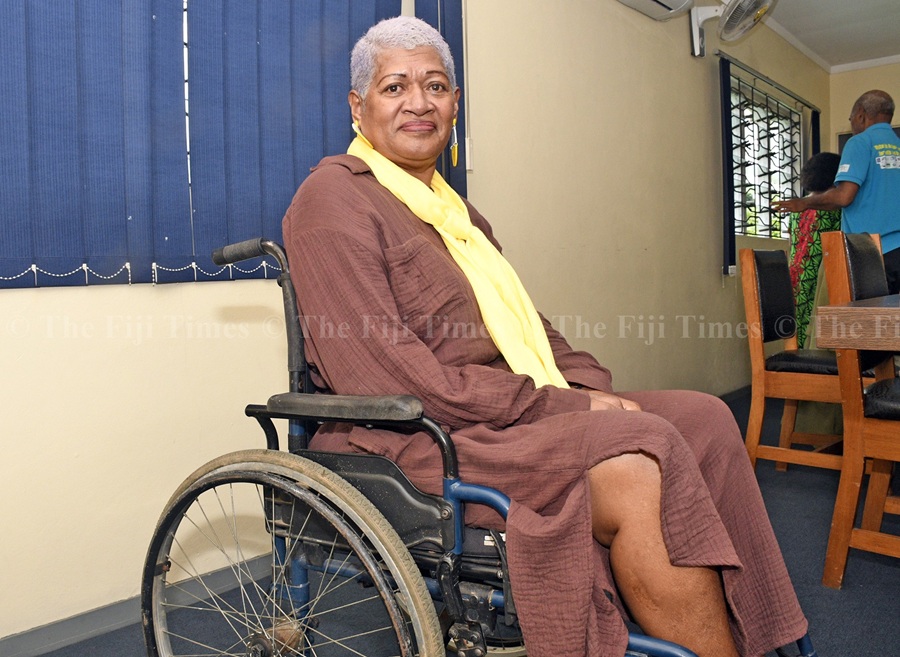Vani Dikau Chang got up around 1am on 7 August 2022 to relieve herself.
Still half-asleep and tired from working the night before, creating pearl necklaces, she felt like one of her legs was still “sleeping” and a bit harder to move than the other.
When she had a bit of time to adjust herself from her sleepy state, she realised her speech was slurred and difficult, as she attempted to call her daughter to ask for help.
“I didn’t know then that I was suffering the early onset of a stroke,” she said.
“I never dreamt that this would happen to me.”
Today at 59, Ms Chang who is from Lomanikoro, Bua, has been living with the effects of that stroke for three years and is confined to a wheelchair.
“I’m the outgoing type. I love eating and at social gatherings, I eat to my heart’s content.
“For about five years before the stroke, I had also stopped taking my medication for hypertension. I believe that’s the reason I got the stroke. I also didn’t prioritise rest.
“If I had known then what I do now, I would have taken better precautions.”
Ms Chang is one of many stroke survivors who attend the weekly TalkShop programme organised by Counterstroke Fiji, a charitable organisation that provides support for stroke survivors, as well their families and carers.
“I have five children, and not once did I ever have high blood pressure during my pregnancies. But in 2013, I was diagnosed with hypertension because of an injury on my lip resulting from an incident of domestic abuse.
“When I went to the hospital to get the injury treated, they couldn’t release me to go home because I had high blood pressure.”
Ms Chang said this was the start to her new life with hypertension.
She said she took her medication every day but her blood pressure was still high whenever she went to the clinic for checks.
“I stopped taking my medication and decided to take herbal medicines instead.
“If I had continued taking the medication I was given, I believe the story would be different today.”
Following her stroke, Ms Chang’s daughter took her to Serea, Naitasiri, to recover.
“It was therapeutic but then I grew tired of it and missed my friends and family. So many things came to mind but I tried to stay positive.
“I tried to find my way back to Suva to help myself recover. I applied to the Housing Assistance and Relief Trust (HART) and even went there a few times in my condition but they made the process so difficult and I felt like even the able-bodied had a better chance of being assisted than people like us.”
Eventually, her children helped their mother find and pay for a flat and also had to get a carer after she had a fall and fractured her foot.
“I have never given up hope. In my mind, I keep telling myself I need to get back on my feet.
“I’m doing better now — before I usually just lay down all day and just sat on my wheelchair and had my meals on the wheelchair. But now I can pull myself from the bed to the wheelchair and vice versa and take myself to the toilet.”
Ms Chang remains steadfast in her belief of a life beyond the confines of her wheelchair.
“I believe I will walk again. I have made some progress.
“I have told my children, siblings and friends — watch what you eat, go and see a doctor if you’re sick, and take your medication — I do not want to see any of them go through this.
“It is a life of suffering — when you want to do things but can’t because your condition limits you. Right now, I’m praying and fasting and I believe by the fortieth day of this fast, I will be out of this wheelchair — where there’s a will, there’s a way.”



